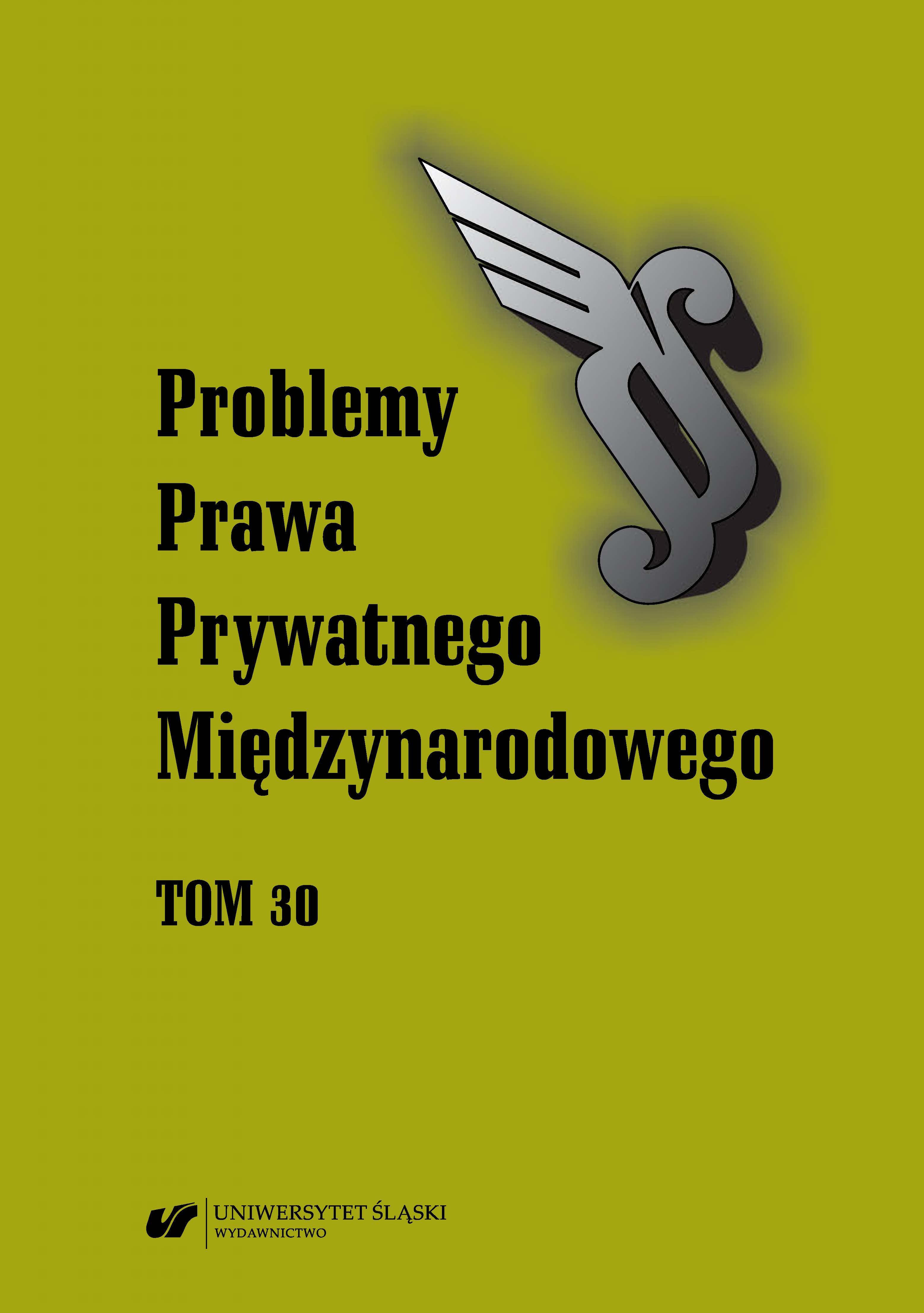Odrzucenie spadku w świetle wyroku TSUE z 2 czerwca 2022 r. (C-617/20)
Waiver of Succession in light of the CJEU’s Judgment of 2 June 2022 (C-617/20)
Author(s): Jadwiga PazdanSubject(s): Civil Law, International Law, EU-Legislation, Court case
Published by: Wydawnictwo Uniwersytetu Śląskiego
Keywords: the EU Succession Regulation; habitual residence; acceptance of waiver of the succession, of a legacy or of a reserved share; substantive validity; jurisdiction; case C 617/20
Summary/Abstract: The jurisdiction provided for in Article 13 of Regulation 650/2012 is ancillary to the jurisdiction regulated in Articles 4—11 of the Regulation. It covers only the declarations described in this provision. Their content is determined by the law applicable to succession. Jurisdiction under Article 13, on the other hand, does not cover the consequences of the silence of a candidate for an heir. The effects of the waiver of the succession are assessed according to the provisions of the law applicable to succession even if the waiver occurred within the jurisdiction of Article 13 of the Regulation. In the case before the CJEU, the Bremen court of succession held that since it had not been served with the original document containing the waiver of the succession with an official translation into German within the deadline set by the law application to succession (Section 1944(3) BGB), there had been no effective waiver of the succession. Responding to the preliminary questions of the German court of second instance, the CJEU correctly stated that in the case of waiver of the succession in the state, in which the waiving heir has his or her habitual residence, it is sufficient to comply with the form requirements provided for by the law of the state in which that declaration is made, without a necessity to comply with the requirements of the lex successionis. On the basis of legis processualis, the German court of succession could have requested that translation into German of the documents drawn up in Dutch is submitted. On the same basis, it could also have demanded the submission of the originals of the above documents. However, it incorrectly held that these acts must be completed within the time limit for waiver of succession provided for in the legis successionis. It is also clear that the failure of the heir waiving the succession to comply with the instruction contained in the last sentence of recital 32 of the Regulation (paragraph 74) regarding the obligation to give notice of waiver, does not render the waiver invalid. It seems desirable in future, however, to explicitly include in the Regulation the obligation to notify the court of succession of the waiver, in the country of habitual residence of the waiving heir.
Journal: Problemy Prawa Prywatnego Międzynarodowego
- Issue Year: 2022
- Issue No: 30
- Page Range: 139-172
- Page Count: 34
- Language: Polish

